Highlights from the Ethnomusicology Archive - the David Gamble collection
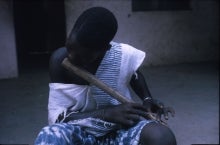
David Gamble, who passed away in October 2011, is considered “the” scholar of the Gambia. He was employed by the Colonial Office during the late 1940s and 1950s, and his published works include extensive monographs on the Fula, Wolof and Mandinka languages of the Gambia. He wrote extensively on Fula custom and the history of the Gambia, and worked at the Department of Anthropology, San Francisco State University, during the 1970s and 1980s.
"Tukulor with flute." Njau, Gambia (22 Jul 1970)
He published dictionaries, folktales, grammar books and bibliographical materials. He is credited with 151 works in 271 publications in 3 languages.
Professor Gamble donated his collection to the Ethnomusicology Archive, literally, days before his death. This is an extremely large collection, including sound, papers, books, journals, and hundreds upon hundreds of slides. The Archive has completed basic processing of this collection, including an in-depth finding aid (thank you, Jesse Ruskin).
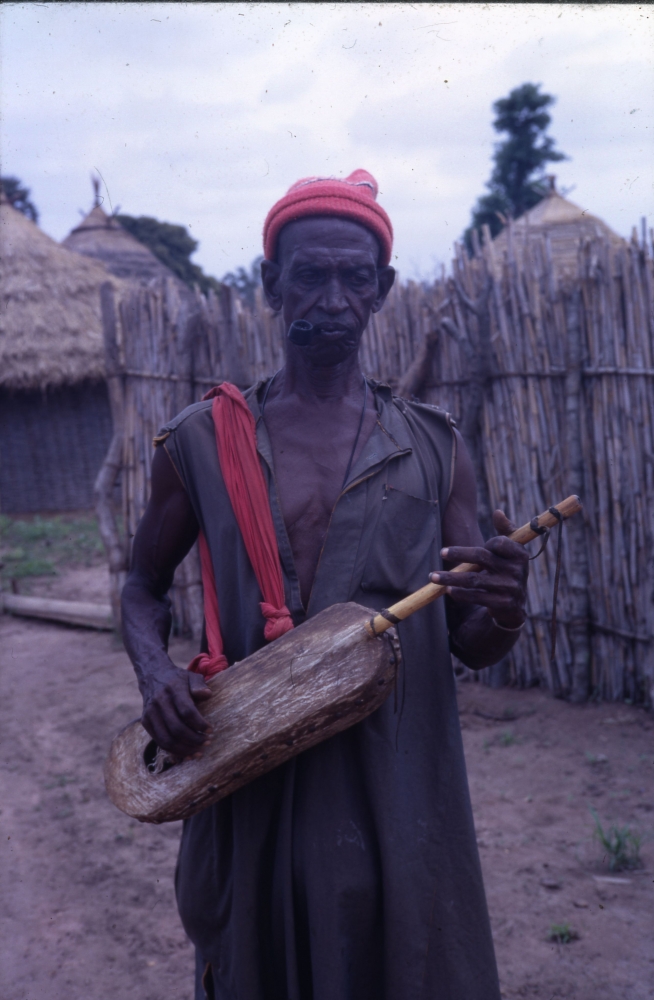
"Tukulor with hoddu." Sambakunda, Gambia (23 Jul 1972)
The UCLA Charles E. Young Research Library Department of Special Collections just this week received 85 additional archival boxes of papers from the David Gamble estate. If you are interested in this part of the collection, check back in a few months to see how goes the collection processing.
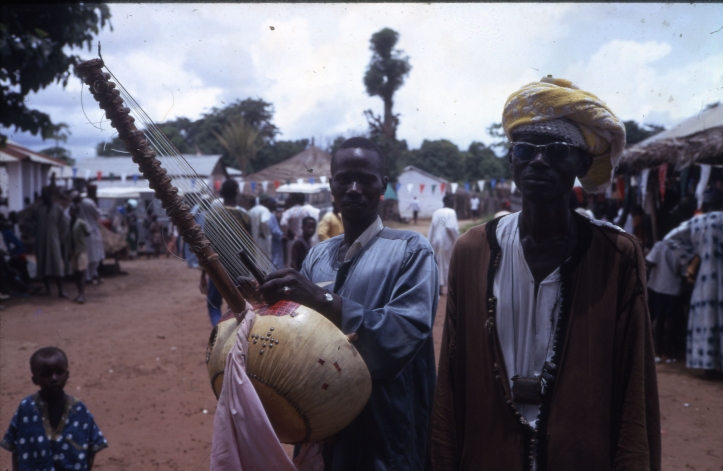
"Kora - jalo, fr. Toniataba." Kwinella, Gambia (11 Aug 1970)
For a sample of Gamble's writing on the Gambia, look at his 52-part Gambia Studies Series posted on the St. Mary’s College of Maryland Gambia Signature Program website.
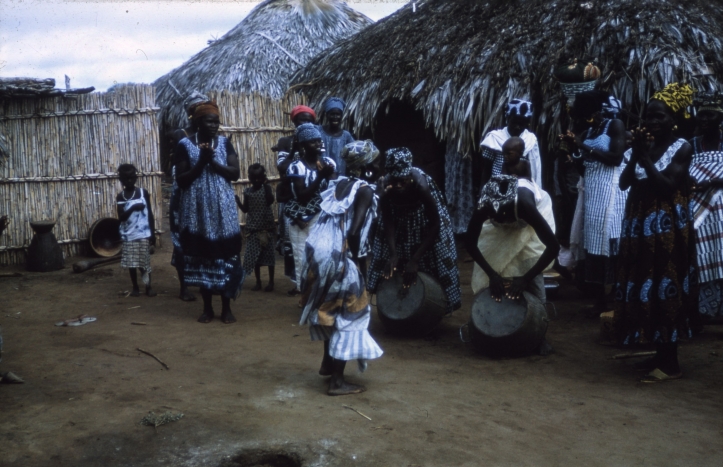
"Drumming on tin basin." Guijahanka, Gambia (24 Jul 1970)
The Treganza Anthropology Museum, Department of Anthropology, San Francisco State University, has a wonderful photo of Professor Gamble and his famous DOT motorcycle, along with his description of the machine, on their Reconstructing Our Past: Achievements of the Department of Anthropology: Gamble's Gambia online exhibit.
And a select bibliography:
Gamble, D.P. (1949) 'Contributions to a socio-economic survey of the Gambia'. [London] : Research Dept., Colonial Office.
Gamble, D.P. (1949) 'Mandinka grammar'. [S.l. : s.n.]
Gamble, D.P. (1952) 'Infant mortality rates in rural areas in the Gambia Protectorate'. Reprinted from: The Journal of tropical medicine and hygiene, v. 55 no. 7, July 1952 [S.l. : s.n].
Gamble, D.P. (1953) 'Economic Conditions in Two Mandinka Villages, etc.'. London.
Gamble, D.P. (1956) 'Mandinka Reading Book'. Bathurst.
Gamble, D.P. (1957) 'The Wolof of Senegambia : together with notes on the Lebu and the Serer', Ethnographic survey of Africa. Western Africa ; part 1. London : International African Institute.
Gamble, D.P. (1958) 'Bibliography of the Gambia'. London.
Gamble, D.P. and Louise Sperling (1979) 'A general bibliography of the Gambia (up to 31 December 1977)', Bibliographies and guides in African studies. Boston : G. K. Hall.
Gamble, D.P. (1980) ''Wolof stories from Senegambia : mainly from old published sources', Gambian studies ; no. 10. San Francisco : [Dept. of Anthropology, San Francisco State University]
Gamble, D.P. (1987) 'A general bibliography of The Gambia : supplement II, 1978-1982', San Francisco.
Gamble, D.P. (c. 1988) 'The Gambia', World bibliographical series, v.91. Oxford : Clio.
Jobson, Richard (1999) 'The discovery of River Gambia (1623). Edited, with additional material', by David P. Gamble, P. E. H. Hair'. London : Hakluyt Society.
If you are interested in the David Gamble collection, please come by the Archive or email one of the archivists.
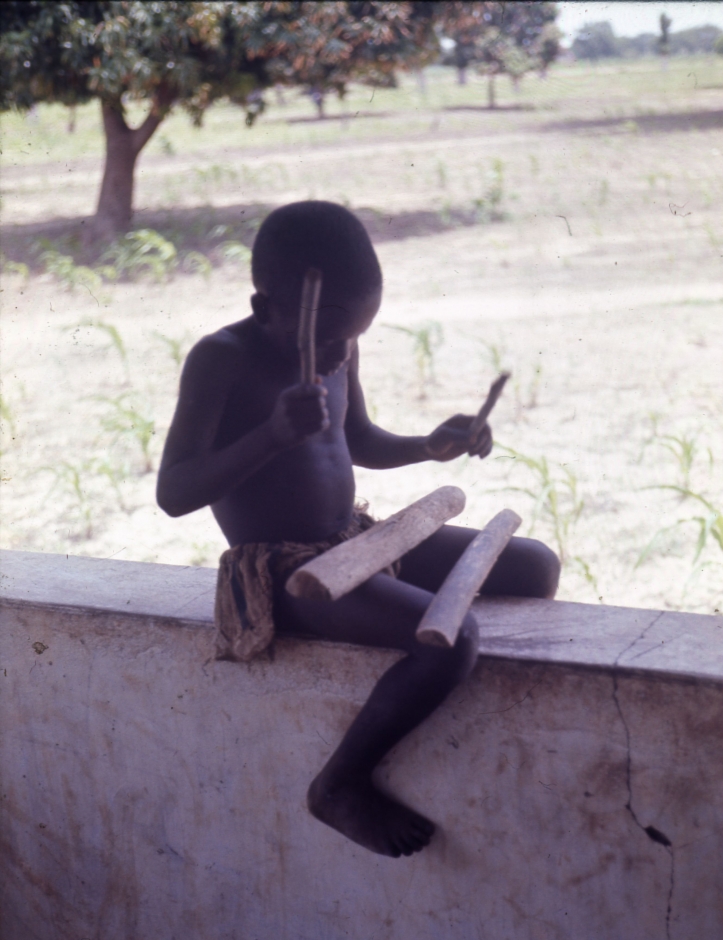
"Boy with balo." Bantunding, Gambia (26 Jul 1972)
All of the photos in this column are from the UCLA Ethnomusicology Archive. David Gamble collection. All right reserved.





